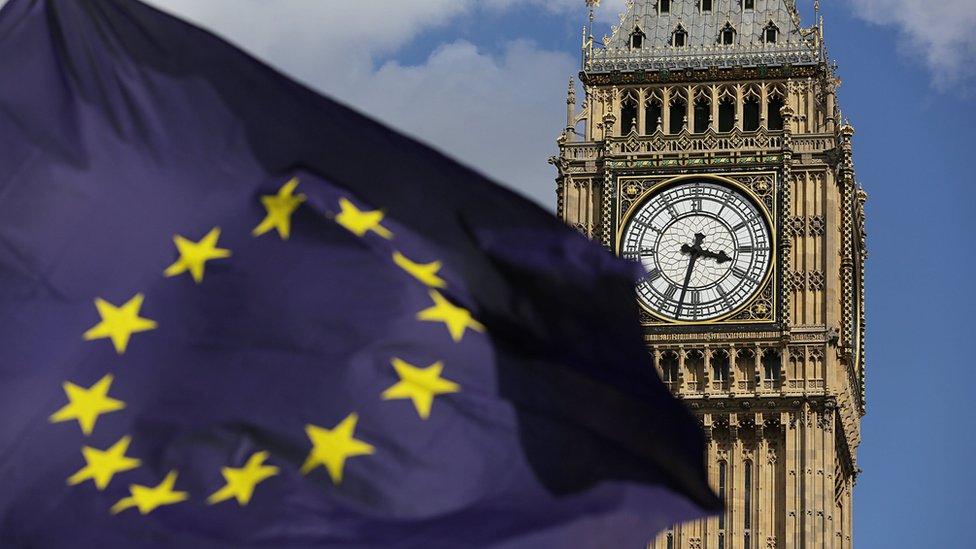Government 'planned to publish Brexit Green Paper'
- Published

The government planned to publish a broad outline of its Brexit negotiation aims, sources have told the BBC.
A "Green Paper" document was a "serious idea" but was dropped, sources told BBC political editor Laura Kuenssberg.
Downing Street denied the publication of a Green Paper was ever part of its plan.
Ministers are facing pressure to set out what they want to achieve from the talks with the EU before formally triggering Brexit by the end of March.
Prime Minister Theresa May has repeatedly refused to give a "running commentary" on the talks.
But sources told the BBC the government had planned to produce a Green Paper - a consultation document setting out policy proposals - in the Autumn.
"We were told there would be one in October," one source said, adding that the financial sector had been asked to provide "a data dump and a shopping list" by the end of September in order to facilitate the process.
A separate source said they had been briefed by government officials that the Green Paper "was expected late September", while another added: "It's gone away - the only thing they agree on is so high level that there would only be one page...I'm not sure that there is a coherent plan."
But a Downing Street source said the claims were "tosh".
'Plenty of debates'
In July, shortly before he was appointed as Brexit secretary, Conservative Leave campaigner David Davis wrote an article , externalcalling on the government to publish a White Paper policy document before the negotiations had started.
In the Commons on Monday, Labour MPs asked Mr Davis what had happened to the "promised" publication, with the minister replying that he had been expressing his thoughts as a backbench MP.
"There will be plenty of debates on this matter," he said.
"What we will not do is lay out a detailed strategy and a detailed set of tactics before we engage with our opposite numbers in the negotiation."
MPs from across the House called for a Commons vote before the start of negotiations.
They included ex-Labour leader Ed Miliband, who said Parliament should be given a say because the referendum had not specified a "particular type of Brexit".
But their demands were rejected by the government, with Downing Street saying there would be no "vote to second-guess the will of the British people".
The UK voted to end its EU membership by 51.9% to 48.1% in a referendum on 23 June.